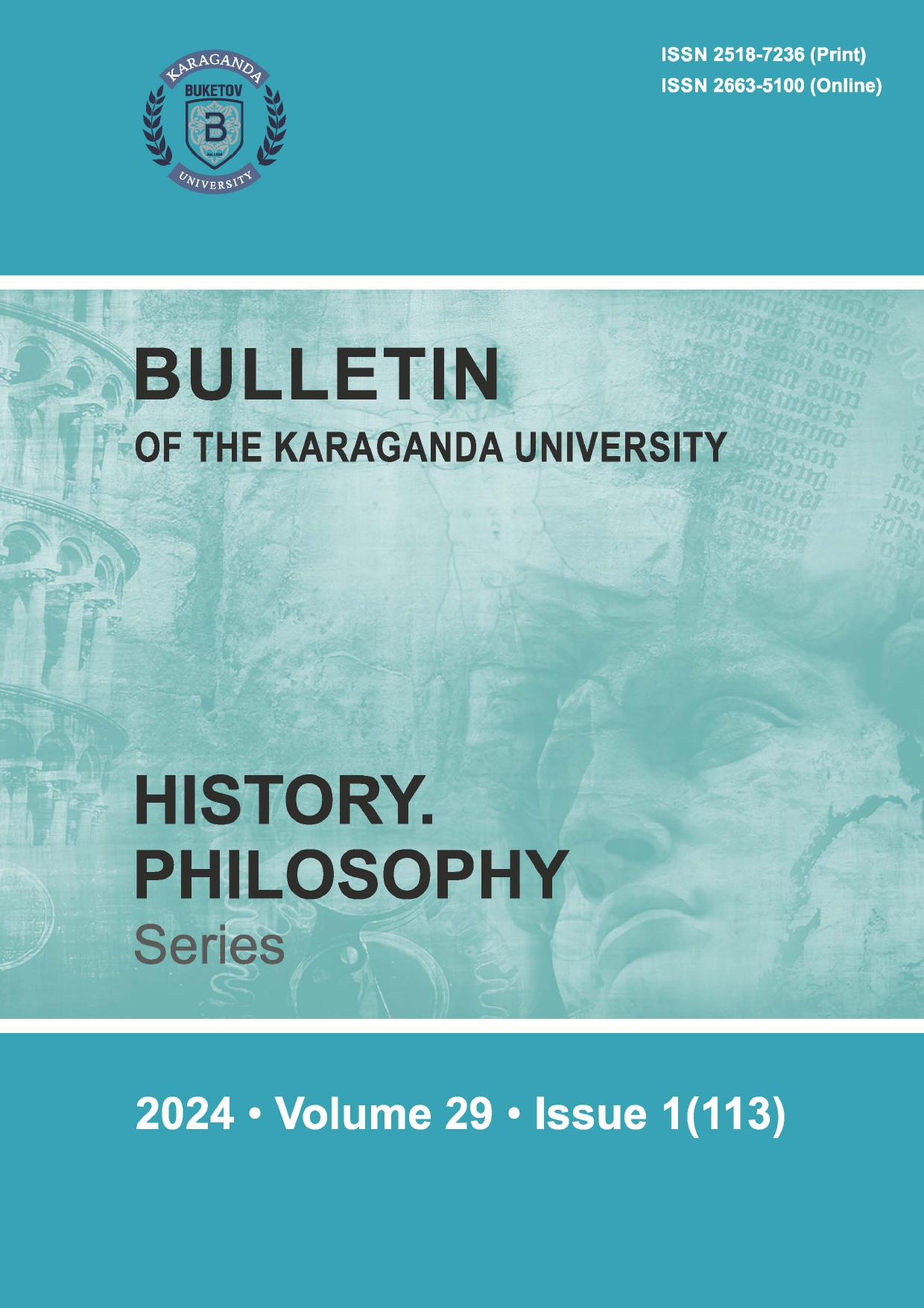Methodological coordinates of understanding the phenomenon of tolerance and ethno-confessional identity
DOI:
https://doi.org/10.31489/2024hph1/188-195Keywords:
identity, tolerance, youth, society, consciousness, ethnicity, denomination, religion, anthropology, humanism, communicationAbstract
In this article, the authors explore the problems associated with the search for the most adequate methodological approaches to the study of the phenomenon of tolerance and ethno-confessional identity. The article proposes to analyze the most realistic methodological variations, according to the author. The author's main attention is paid to the methodological concepts of foreign researchers. The authors believe that, unfortunately, there are no fundamental scientific papers related to the development of methodological foundations that allow the most effective investigation of the nature of the phenomenon of ethno-confessional identity and tolerance in the Kazakh scientific space yet. In addition, the authors note that such research work is mainly related to scientific research conducted by scientists of the Institute of Philosophy, Political Science and Religious Studies, as well as individual domestic scientists of the regions. In the presented work, the authors use a qualitative and quantitative methodology in studying the main contours of the ethnoconfessional palette of society. This approach to the study allowed the authors to study the world around them as a stable system built in a strictly logical and rational way. The authors argue that the high scientific effectiveness of the qualitative and quantitative methodology is determined by the possibility of a panoramic study of the phenomenon of ethnic and confessional consolidation and identity. This article presents some theoretical and methodological developments carried out within the framework of the implementation of research work on the intra-university grant project NIR No. 14-VG–23 on the topic “Ethno–confessional identity of student youth:problems, prospects (on the example of students of the Karaganda University named after E.A. Buketov)”.




